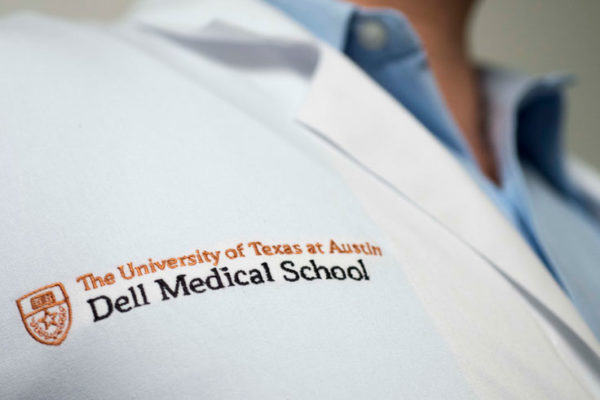AUSTIN, Texas — Dell Medical School at The University of Texas at Austin will lead a $15.5 million redesign of the Austin State Hospital — taking it from a critical but outdated and deteriorating mental health facility to the cornerstone for an improved system of collaborative, community-focused care that helps people across Central Texas.
The Texas Health and Human Services Commission (HHSC) announced Monday that the Austin State Hospital proposal has been approved as part of the Comprehensive Inpatient Mental Health Plan. That plan provides a six-year framework for rebuilding five of the 10 state psychiatric hospitals, as recommended by a 2014 report on conditions at the facilities. HHSC and Dell Med expect to finalize the redesign contract shortly.
Dell Med, working with state Sen. Kirk Watson, has convened a steering committee representing key stakeholder groups from across the region, including:
- Integral Care, the mental health authority serving the Travis County community;
- Central Health, the public health care district serving Travis County;
- The University of Texas System;
- The Health and Human Services Commission;
- Bluebonnet Trails Community Services, the mental health authority serving Williamson and other counties;
- Limestone County Sheriff Dennis Wilson; and
- The Hogg Foundation for Mental Health.
This group will work collaboratively to create a center for brain health on the Austin State Hospital campus. The center will aim to transform mental health and substance abuse care into an integrated system of comprehensive brain health. This new approach will be founded in innovative, person-centered facilities and programs that better serve the continuum of needs across Austin State Hospital’s broad service areas — covering 33 counties for adults and 55 counties for children.

The planning group will deliver a master plan for the campus and facility’s service areas, with a milestone report due in advance of the 2019 legislative session.
“Beyond creating a ground-breaking facility in Austin, the master plan will look for ways to create an innovative continuum of inpatient, outpatient, residential and preventative services that will stretch across the dozens of Texas counties that feed into the Austin State Hospital,” said Dr. Stephen Strakowski, chair of the Dell Medical School’s Department of Psychiatry, who is leading the state hospital redesign effort. “We want to use this once-in-a-generation opportunity to change what it means to have a brain health campus at the heart of a multidisciplinary, community-focused, modern system that serves all people impacted by mental health and substance abuse.”
The planning funds come through a 2018-19 state budget provision, championed by Watson and state Sen. Charles Schwertner, aimed at improving failing mental health facilities across the state. Senate Finance Chair Jane Nelson and House Appropriations Chair John Zerwas required the Comprehensive Inpatient Mental Health Plan as part of the budget and laid out the phased approach to rebuilding state hospital facilities.
“Working with a broad network of community partners, this brain health center of excellence will lead the way on research, training and service-delivery improvements to provide better care in the right place and at the right time,” Watson said. “Transforming mental health care was an integral part of the 10 Goals in 10 Years that I laid out for our community in 2011. This state investment will help bring that transformation to even more Texans, regardless of their ability to pay.”
Schwertner added: “This effort will broadly consider brain health and a widespread system of care. It’s an ambitious, exciting new approach in an area with a vast need for solutions that improve health outcomes at a lower cost.”
The planning effort will start with principles that put people first, stress the best evidence-based models of care, and seek to improve outcomes in communities throughout Central Texas. It will work to incorporate care provided by a wide range of public and private organizations, both on the state hospital site and across the region.
The approach is designed to reduce the reliance on expensive and often less-effective facilities such as jails, hospitals and emergency rooms.
“This unprecedented collaboration will strengthen and improve the mental health care and overall well-being for Central Texans,” said David Evans, chief executive office at Integral Care. “We’ve harnessed our collective expertise to build a larger, more innovative workforce, increase access to effective treatments, and support ongoing recovery. Integral Care’s vision is healthy living for everyone, and this effort brings us many steps closer to reaching that vision.”
“This transformative project has implications for all of Texas,” said Charles Smith, executive commissioner of the Health and Human Services Commission. “As we improve mental health care in Central Texas, we’ll learn lessons to help us improve care everywhere.”




